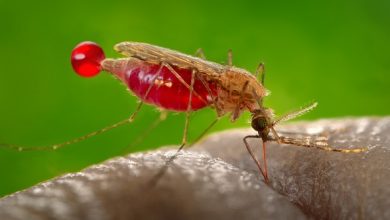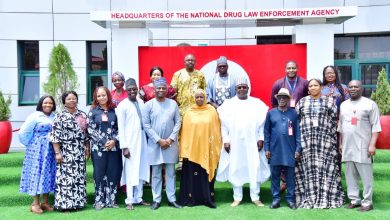NAFDAC Launches Crackdown on Illegal Sachet Water Production in FCT

Illegal sachet water production in Dutse Alhaji and Dawaki of the Federal Capital Territory was clamped down on Tuesday by the National Agency for Food and Drug Administration and Control.
As a result of the enforcement effort, many factories that produced sachet water in hazardous conditions, with inadequate equipment and in violation of regulations, were seized and closed.
The investigation discovered a number of establishments where various people were falsely claiming to be the proprietors of the same brand of sachet water.
As part of enforcement measures, more than 40 illicit water factories have been closed throughout the FCT, Mr. Kenneth Azikiwe, Director of NAFDAC’s FCT department, informed reporters.
As part of a larger effort to make sure all food and beverage producers adhere to strict quality and safety requirements, he said the operation had entered a crucial stage.
The director clarified that the operation was carried out per the explicit directive of Prof. Mojisola Adeyeye, Director-General of NAFDAC, who emphasised the need to adhere to Good Manufacturing Practices.
“This directive comes amid rising concerns over producers using substandard materials, stamping products with unauthorised identification numbers, and operating in unsafe conditions,” he stated.
He said that over 14 bakeries in important FCT neighbourhoods, such as Mararaba, Nyanya, Zuba, and Gwagwalada, had also been closed for failing to adhere to safety standards.
Strict action against those who violate health and safety standards was ensured by the agency’s cooperation with the Nigerian police and other security forces throughout the enforcement exercise.
“This operation required strong synergy and collective commitment to tracking down individuals involved in the illegal manufacturing and distribution of substandard products,” he said.
He emphasised that the action served as a strong message to producers that circumvent regulatory restrictions and reaffirmed NAFDAC’s dedication to consumer safety.
He said that NAFDAC’s thorough examination and subsequent closure of facilities showed its unwavering commitment to public health protection and quality control.
READ ALSO: Nigeria Defies Grid Collapses As Power Supply Surges to 5,713Mega Watt
In order to prevent health hazards, Azikiwe advised Nigerians to exercise caution and only buy consumable goods from reliable, duly registered suppliers.
In an effort to break up the supply chain, he continued, NAFDAC will expand its probe to include printing presses that provide unlawful sachet water makers with unapproved NAFDAC numbers.
Dr. Promise Ogbonna, an assistant director at NAFDAC and a lead enforcement officer, condemned the serious safety and hygienic violations found throughout the operation.
Ogbonna emphasised the dangers that unclean sachet water production poses to public health, pointing out that all of the facilities that were shut down were devoid of vital water treatment components.
“By operating in poorly designed facilities with inadequate packaging controls and multiple unregistered brand names, illegal manufacturers violated safety codes,” she said.
She described the startling discoveries at the locations, saying, “There is no treatment plant, no sand filter, no carbon filter, and the UV sterilisation light is non-functional.”
READ ALSO: Ex-Immigration CG Parradang Found Dead in Abuja Hotel After Female Visitor Left – Police
The facilities were unlawfully extracting untreated water and distributing it to the public without the required registration or adherence to NAFDAC safety regulations, she continued.
Bags of water were discovered strewn about, and restrooms were positioned erroneously facing production areas, she claimed, further jeopardising product safety and hygiene.
“There was no proper storage or sterilisation process for packaging materials, which are critical control points in water production,” Ogbonna stated.
One of the facilities’ employees, Mohammed Asian, acknowledged that a supplier he knew directly printed the “Concept” packets.





